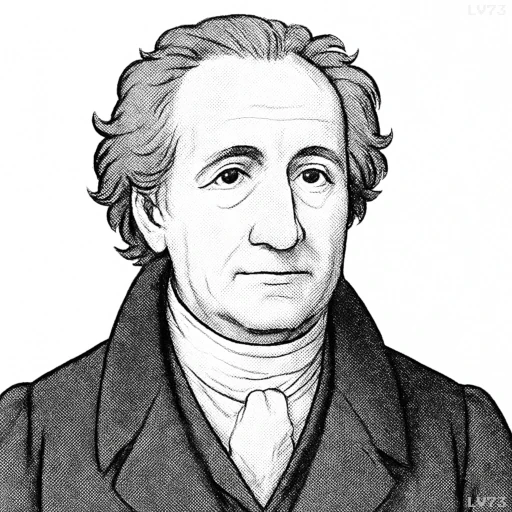“If a man writes a book, let him set down only what he knows. I have guesses enough of my own.”

- August 28, 1749 – March 22, 1832
- German
- Poet, playwright, novelist, philosopher, politician
table of contents
Quote
“If a man writes a book, let him set down only what he knows. I have guesses enough of my own.”
Explanation
Goethe emphasizes the importance of authenticity and knowledge in writing. He suggests that when an author writes, they should only share what they truly know and understand, rather than speculating or presenting unverified ideas. The writer’s work should reflect personal experience or well-founded knowledge, not just theories or assumptions. Goethe expresses a desire for clarity and truth in written works, indicating that readers do not need more guesses or uncertainties, but rather solid, reliable insights.
Historically, this idea reflects Goethe’s commitment to integrity in his writing and the broader intellectual traditions of his time. During the Enlightenment, thinkers like Goethe were deeply concerned with the idea of knowledge and reason, valuing honesty in intellectual discourse. Goethe himself, a prolific writer, poet, and philosopher, was dedicated to truth and personal experience in his work. He often explored the intersection of science, philosophy, and literature, and saw literature as a means to share genuine understanding rather than empty speculation.
In modern contexts, this quote is highly relevant in areas like journalism, nonfiction writing, and research. In an age where misinformation and conjecture are often presented as facts, Goethe’s call for writers to focus on what they know is a reminder of the importance of credibility and authenticity in all forms of writing. Whether it’s in articles, books, or essays, the demand for fact-based and reliable content is more important than ever. It also speaks to the ethical responsibility writers have to their readers to present accurate and verified information.
Goethe’s words encourage writers to be truthful and genuine, ensuring that their work reflects their true knowledge rather than ungrounded assumptions or guesses. This approach leads to a deeper connection between the writer and the reader, built on the foundation of trust and authenticity.
Would you like to share your impressions or related stories about this quote in the comments section?



